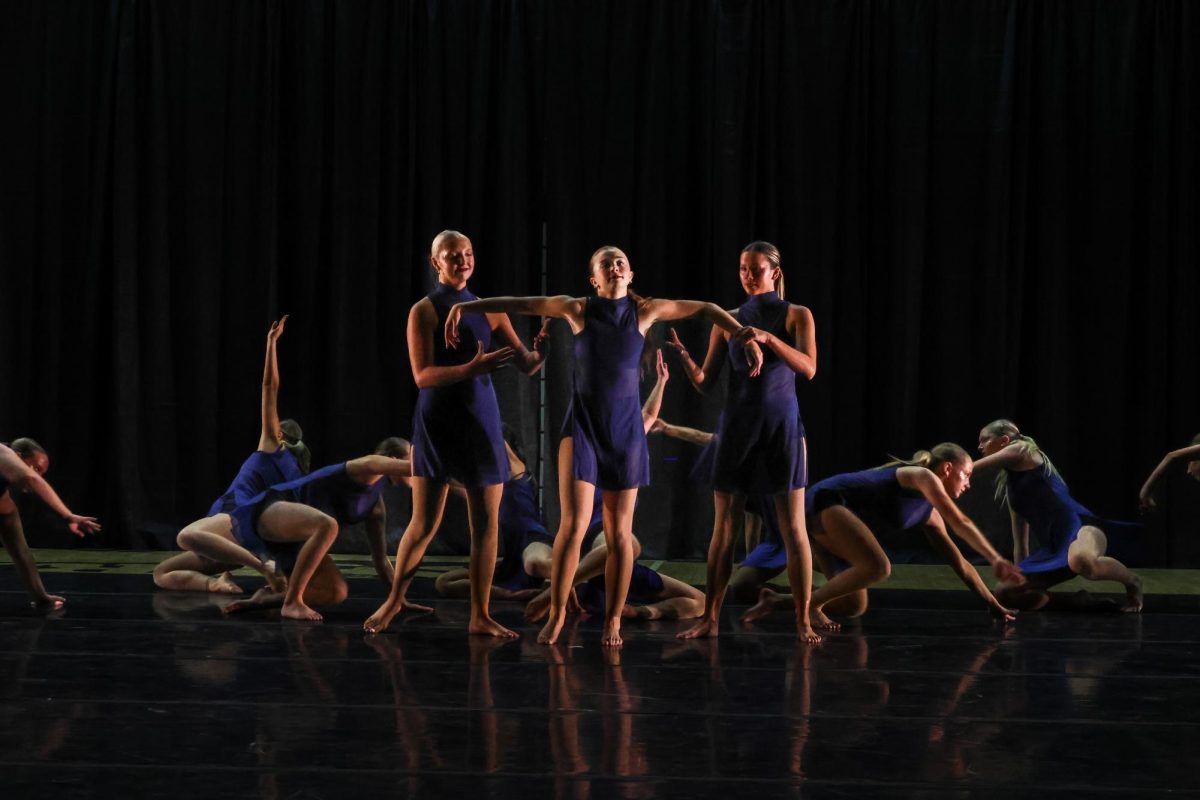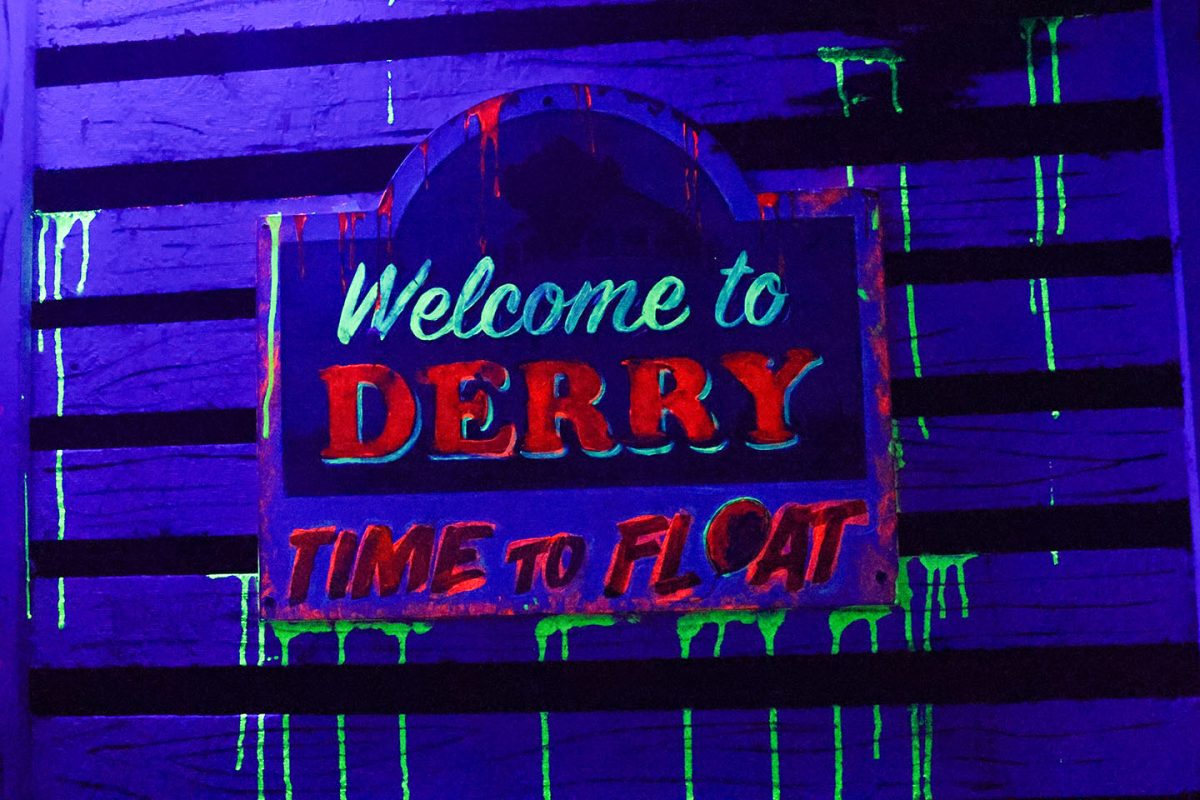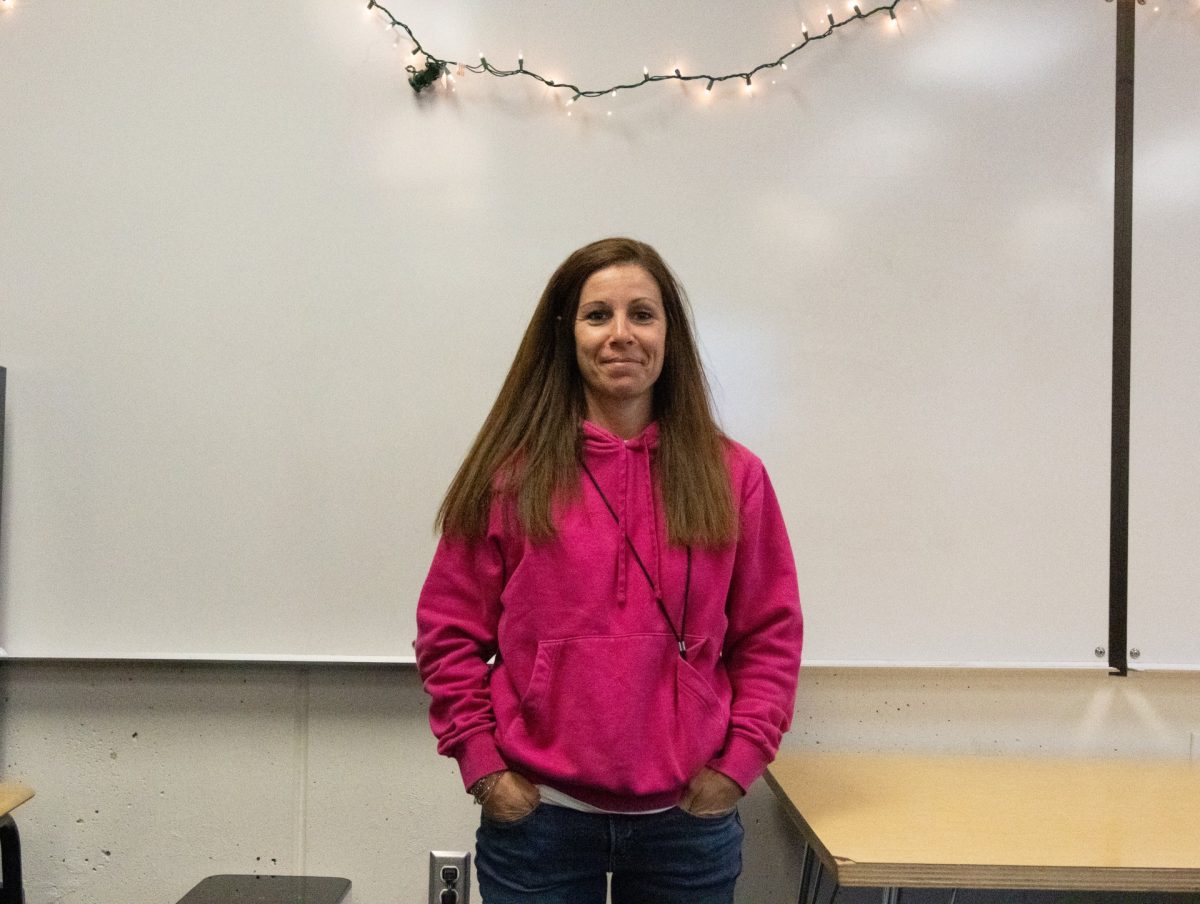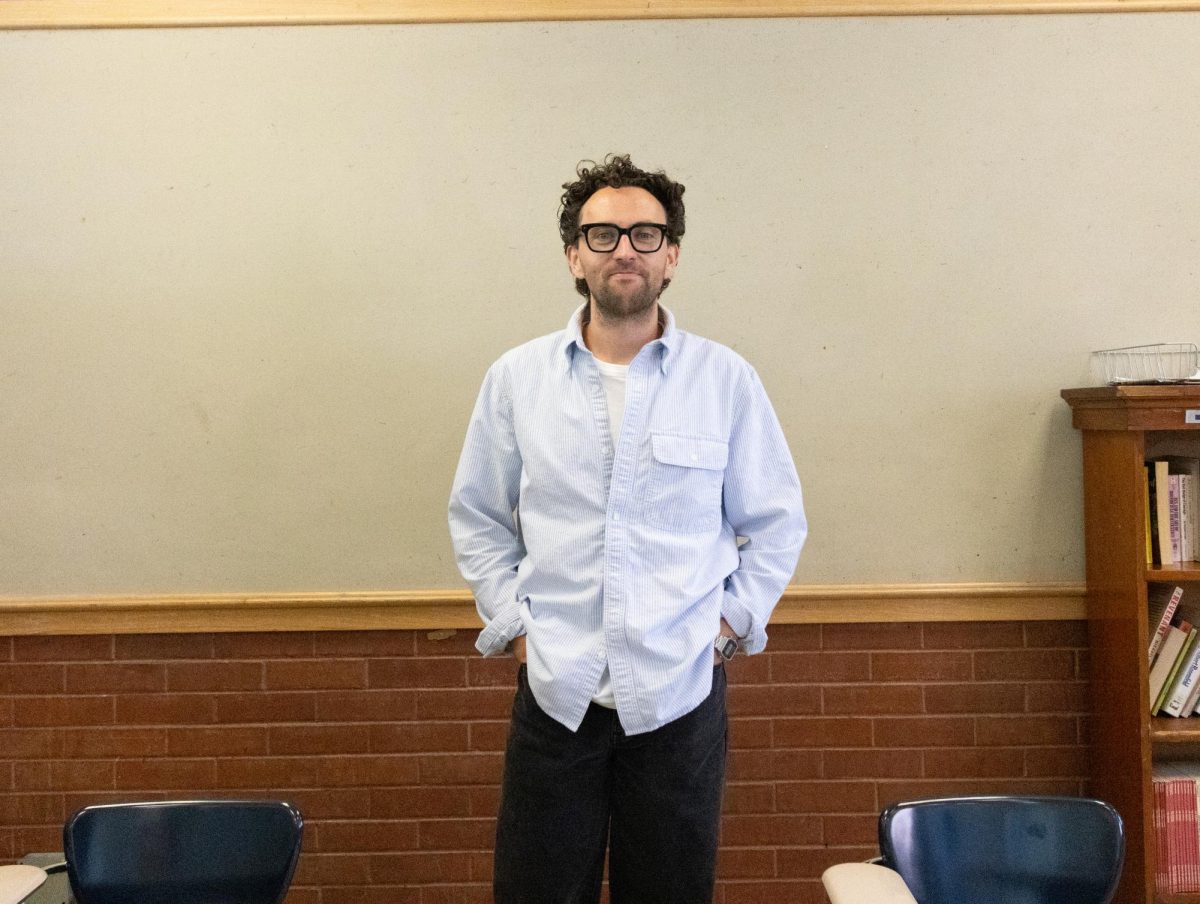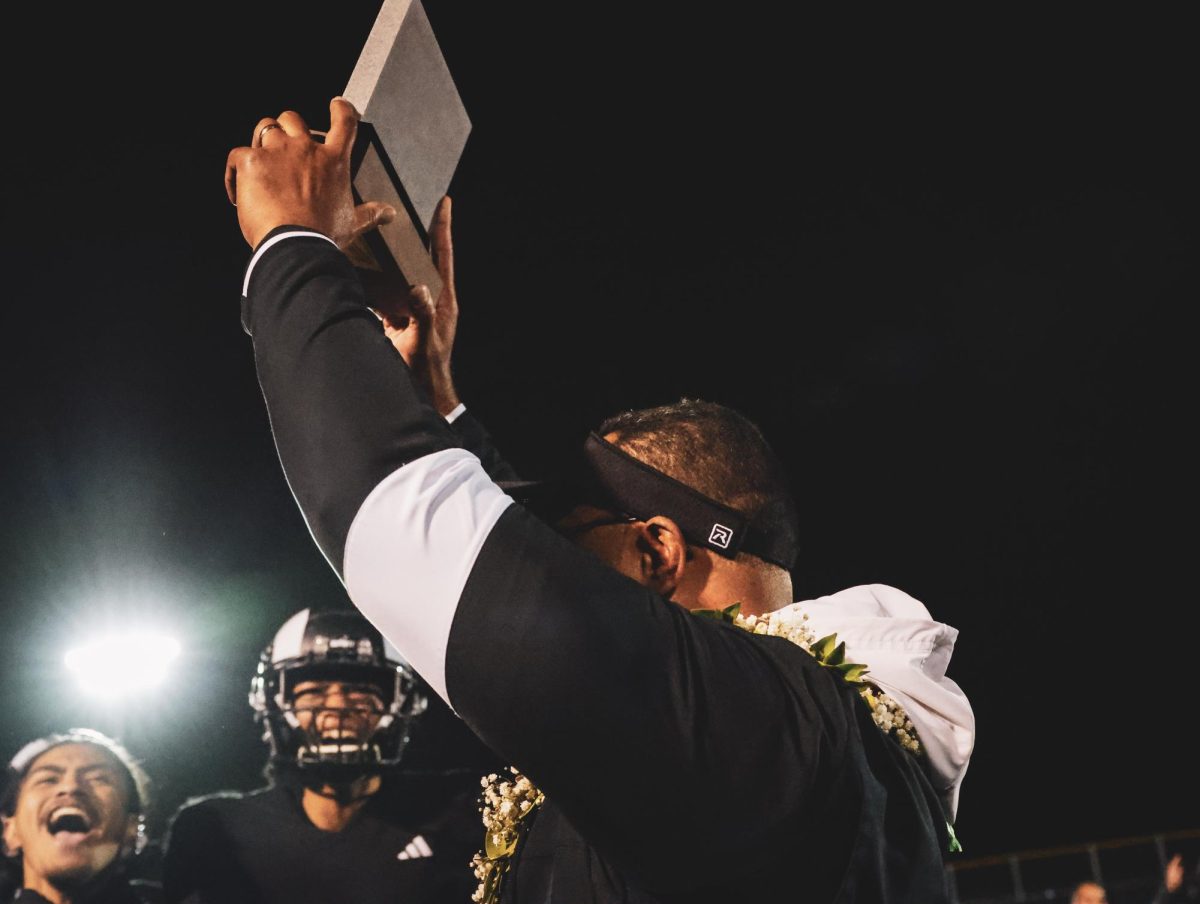Police Brutality Sparks Controversy

Officer Andrew Pedersen talks to students about police brutality
April 17, 2015
“Hands up, don’t shoot! Hands up, don’t shoot!”
This seemingly simple phrase has been screamed by millions across the United States in protests and demonstrations against police brutality within the past year. A phrase that originated from the August 2014 shooting of 18-year-old Michael Brown in Ferguson, Missouri, “Hands Up” has become more than a simple saying and gesture–it has become a call for justice, truth, and equality by various groups throughout America. However, not all agree that the controversy and claims of racism are necessarily justified. The Michael Brown shooting is not an isolated case, and is only part of a series of events that have recently rocked the nation.
Police brutality is a topic which has been widely covered by the media, especially within the past year. The shooting of Brown and others (such as the shooting of 17-year-old Trayvon Martin in 2012 and the death of 43-year-old Eric Garner after police put him in a chokehold in 2014) have sparked questions about the continuation of racism and prejudice in the United States. Brown, Martin, and Garner were all African-American males, creating suspicions of prejudice and racist behaviors within various police departments. The public has vehemently argued over whether the shootings were justified, as well as the true nature of the cases.
“Honestly, I believe that some cases may be racist. It’s hard to believe that they’re not racist when most of the cases do in fact involve a white policeman and a person of a different race,” junior Jordan Moreno said.
Salt Lake City has also seen its own share of controversy after a man was killed by a police officer in the Avenues in January. The man was displaying suspicious activity, going door to door offering to shovel sidewalks and driveways when there was barely any snow on the ground. The police officer and the man had an altercation, and the man threatened the officer with a shovel. The officer returned fire and delivered a fatal shot to the man. Questions were raised as to whether the officer necessarily needed to kill the man. While some argued that the officer was justified in delivering a fatal shot after being attacked, others stated that a taser would have been just as effective in taking down the criminal. This argument represents a larger debate that is currently sweeping across the United States.
In 2014, Utah officers shot and killed 14 people, which is the highest number in at least five years. This number may reflect increasingly aggressive behavior toward officers as well as officers’ growing tendencies to react to situations with fatal shots. Surveys in recent years throughout minority groups such as Latinos and African-Americans suggest that confidence in law enforcement officials is relatively low. Is this lack of confidence justified? A recent report which detailed a history of racist actions within the Ferguson police department suggests that it is justified in many cases.
However, Highland resource officer Andrew Pedersen offers a different perspective on the topic. Pedersen, who has worked at Highland for two years, is discouraged by the general public’s lack of trust in police officers. He is eager to clear the misconceptions surrounding officers in order to make Highland a more secure and protected environment.
“It’s being painted that anything that a cop does is abusive, but the press often has an agenda,” Pedersen explained. “However, anytime someone uses force that can cause bodily injury or death, the officer is justified in using force.”
Recent events such as the shooting of Brown have certainly increased tensions between civilians and police officers. There have been protests against police brutality across the nation, and the portrayal of cops in the media has often been critical. However, Pedersen argues that the media should not always be trusted or depended on as heavily that it is in today’s world.
Pedersen’s work at Highland includes responding to calls for fights, drug possession, assault, theft, and other crimes within the school. As a person who often works with firearms, Pedersen is an advocate of the second amendment, and believes that many of the recent shooting crises in the United States may have been avoided if more responsible people owned firearms.
“I think the people have the right to bear arms. The more good people have them, the safer our public will be. Any laws that they make try to keep the criminals from getting guns only prevent the good guys from getting guns,” Pedersen said.
Pedersen also emphasizes the concept of responsibility that police officers possess. Whenever an officer shoots someone, they are responsible for every round that leaves their gun. Although many blame officers for executing kill shots when they could instead shoot a criminal in an arm or the chest, Pedersen explains that this logic is flawed and could be harmful to other innocent civilians and bystanders.
“If I shoot someone in the arm, and it misses and hits a boy down the street, I’ll be responsible for that. We’re trained to shoot the biggest target [the chest],” Pedersen said.
Tasers, another weapon used by law enforcement officials, can be ineffective through layers of heavy clothing. It can also be difficult to face a criminal armed with a gun when carrying only a taser. For a police officer, carrying a gun is often a safer bet for personal safety as well as the general well-being of the public.
Opinions about the causes and repercussions of police brutality differ from person to person, but it seems unfair to claim that all police officers are racist, bigoted, or violent. The officials who have created controversy have also cast suspicion and judgment on the profession itself, although they represent only a small minority of the police force. Moreno agrees that many officers are facing unfair accusations resulting from the controversy.
“I mean, just because one cop shoots and kills someone, it doesn’t mean that they’re all like that. I don’t believe that we should judge every policeman based on the actions of one policeman,” Moreno said.
Ultimately, the disagreement regarding whether police brutality and shootings are based on racism is going to continue, as it is largely perpetuated by the media and has become a topic of everyday conversation. In all reality, it is up to the individual to decide whether or not they believe that racism still clouds our justice system today.
